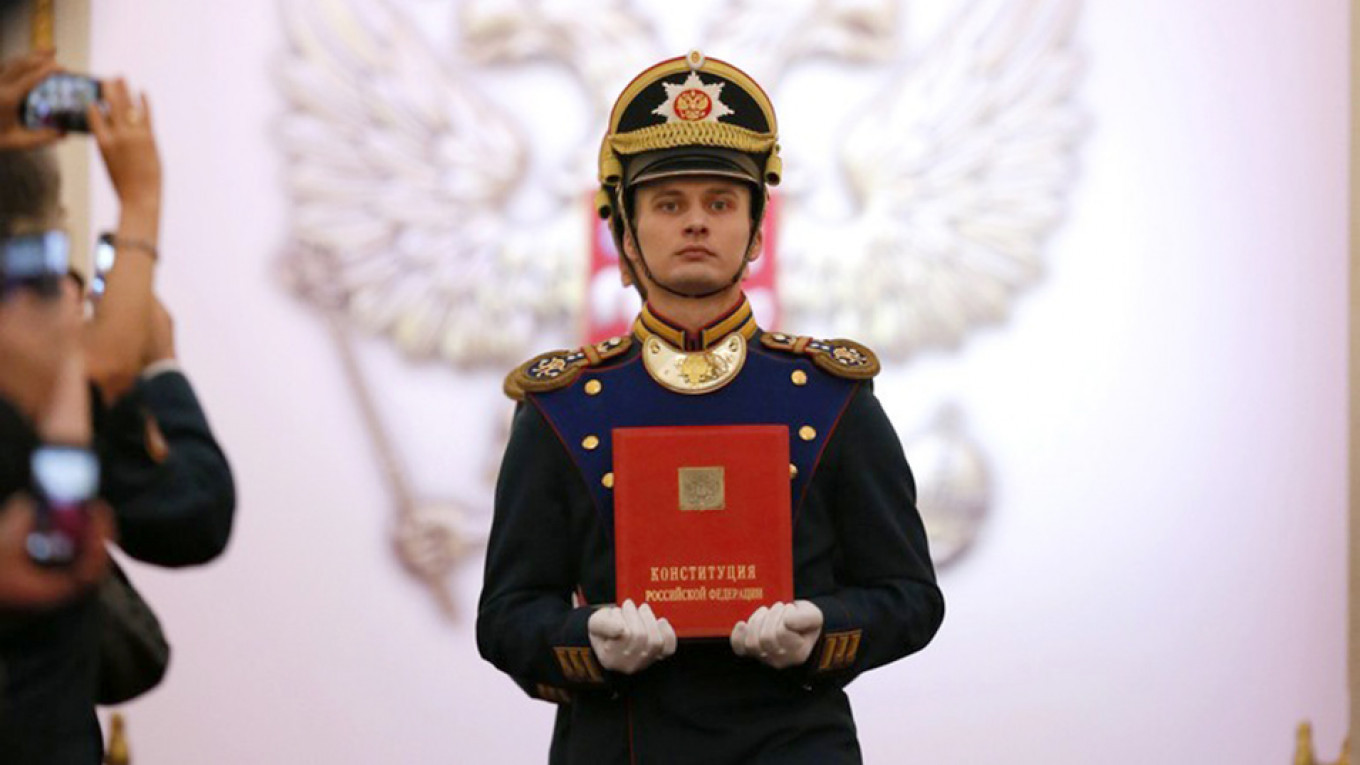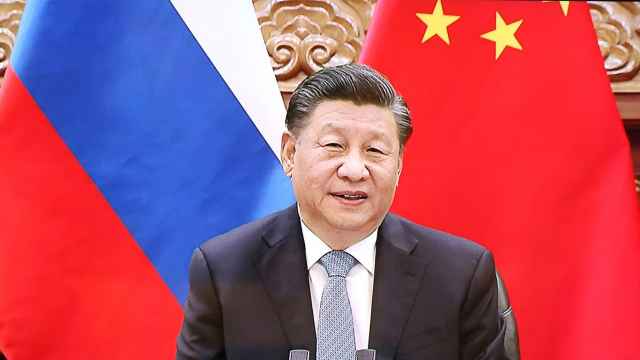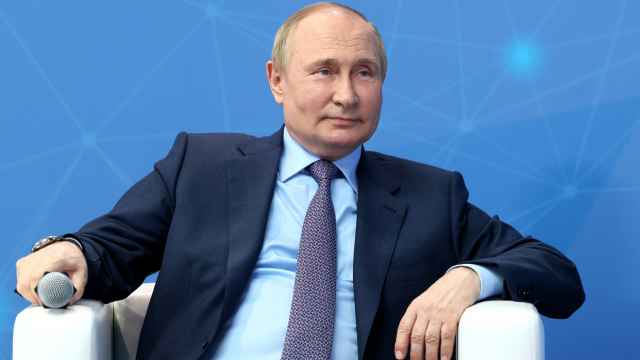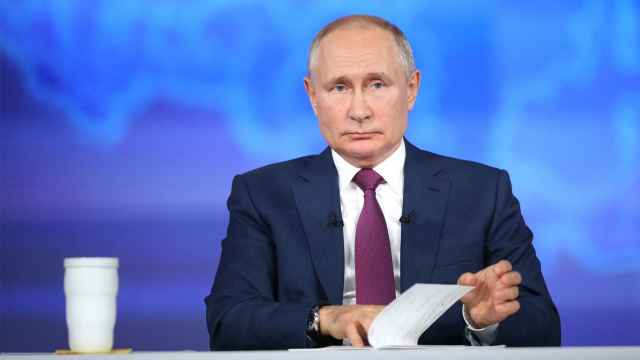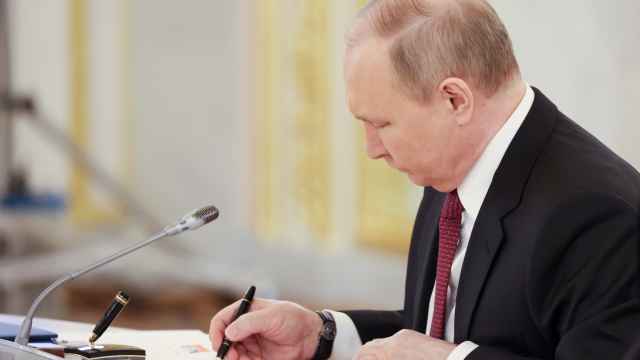President Vladimir Putin proposed giving broad new authority to set the direction of foreign, domestic and economic policy to the State Council as part of the constitutional overhaul he announced last week.
Putin laid out the details of the plan — widely seen as the Kremlin’s effort to lay the groundwork for Putin extending his rule beyond the end of his current term in 2024 — in draft amendments to the constitution submitted to parliament Monday.
The changes, which cover 21 pages, fill out some of the gaps in the plan Putin announced last week in his state-of-the-nation address. The overhaul would weaken the presidency somewhat, while giving more power to parliament and particularly to the State Council.
At the moment, that body is a gathering of regional and national leaders headed by Putin but with largely ceremonial powers. Under the proposed changes, the Council’s role would for the first time be written into the constitution and a special federal law.
The State Council would have the power to “set the main directions of the domestic and foreign policy of the Russian Federation and the priority areas of socio-economic development,” according to the draft. The body would be formed by the president, although the proposed amendments give no indication how that process would take place.
State council
Leading a strengthened State Council could be a role that might allow Putin to continue to dominate Russian politics even after the end of his current term, which must be his last under the constitution. Still, by giving the authority to the president to form the body, the draft amendments didn’t give it the broad reach some analysts had expected after Putin first proposed the changes in his speech last week.
Putin has described the constitutional amendments as aimed at strengthening Russia‘s democratic institutions. Over the weekend, he said that return to the Soviet tradition of leaders for life would be “worrying.” The amendments include a provision to limit presidents to no more than two terms in total, rather than consecutive as in the current constitution.
“The State Council becomes something like a collective presidency,” said Andrey Kortunov, head of the Kremlin-founded Russian International Affairs Council. “It will be very important who heads it and how it’s formed.” Those issues aren’t addressed in detail in the draft published Monday.
“One of the most important questions is will the State Council’s decisions be binding for the president,” said Sergei Pepeliaev, managing partner at Pepeliaev Group, a Moscow law firm. Under the amendments, “the president is giving up a bit of his authority,” he said, without substantially weakening it.
The changes spell out Putin’s proposals to reduce presidential power in other areas, although some aren’t as sweeping as the president suggested in his speech last week.
Parliamentary power
In addition to enshrining the State Council in the constitution, the proposed changes also give the parliament greater say over the formation of the government. The president’s candidate for prime minister would need formal confirmation by the lower house of parliament, instead of the current process of giving consent. The premier’s cabinet picks, currently not subject to legislative approval, would require parliamentary confirmation and couldn’t be rejected by the president.
The upper house of parliament would be consulted in Putin’s picks for defense minister and other security posts. The draft also calls for adding new members to the upper house to be appointed directly by the president.
The proposed changes also formally give precedence to Russian law over international treaties and obligations.
In a nod to public discontent over stagnant living standards, the changes also call for writing the obligation to index pensions and other government benefits for inflation into the constitution.
Parliament has scheduled an initial vote on the changes for Thursday, with full approval expected in the next few months. The draft law says the plan will also be subject to a national vote, which officials have said will be held this spring once it’s passed by parliament.
Earlier Monday, Putin broadened the shakeup, removing Yuri Chaika, a longtime ally, as prosecutor general and giving the post to a senior investigator.
A Message from The Moscow Times:
Dear readers,
We are facing unprecedented challenges. Russia's Prosecutor General's Office has designated The Moscow Times as an "undesirable" organization, criminalizing our work and putting our staff at risk of prosecution. This follows our earlier unjust labeling as a "foreign agent."
These actions are direct attempts to silence independent journalism in Russia. The authorities claim our work "discredits the decisions of the Russian leadership." We see things differently: we strive to provide accurate, unbiased reporting on Russia.
We, the journalists of The Moscow Times, refuse to be silenced. But to continue our work, we need your help.
Your support, no matter how small, makes a world of difference. If you can, please support us monthly starting from just $2. It's quick to set up, and every contribution makes a significant impact.
By supporting The Moscow Times, you're defending open, independent journalism in the face of repression. Thank you for standing with us.
Remind me later.


